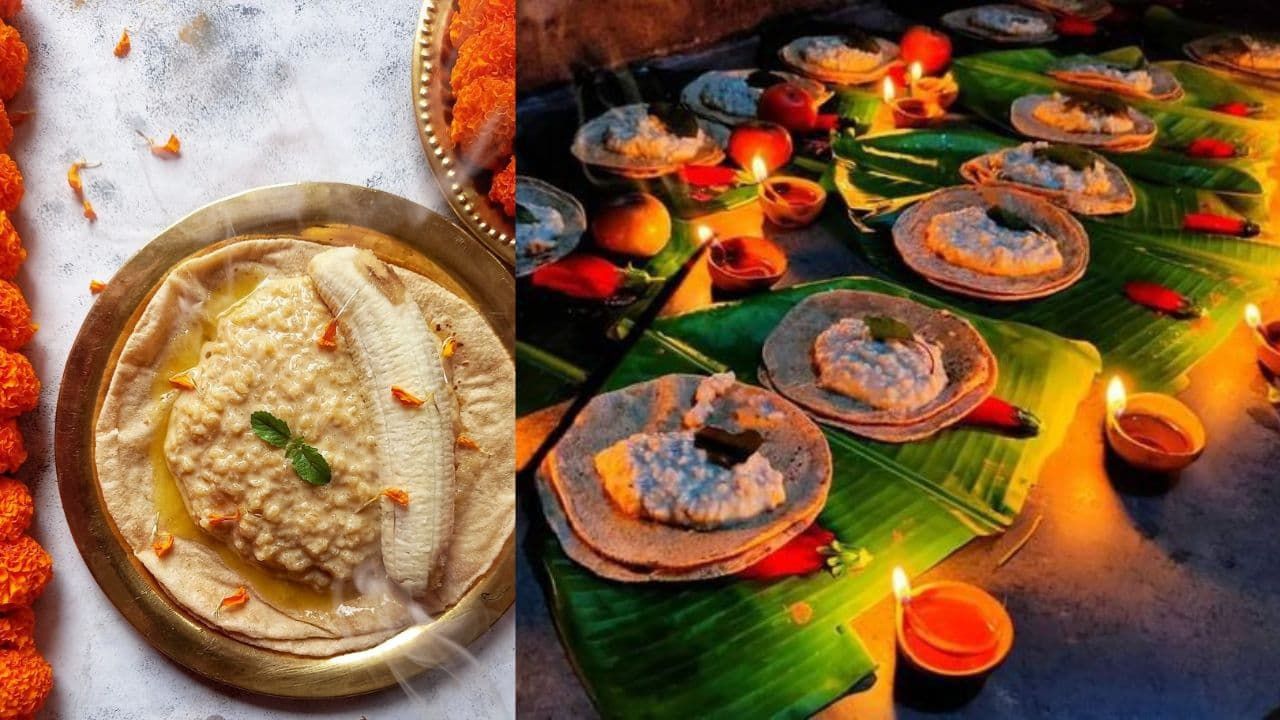On Chhath Puja’s second day, homes fill with the aroma of jaggery kheer and fresh rotis. More than food, Kharna Prasad is a spiritual ritual of gratitude and devotion. How do simple ingredients transform into a sacred, heartwarming offering?

Know the recipe to make Chhath Puja’s jaggery kheer and roti at home.
New Delhi: On the second day of Chhath Puja, homes across Bihar, Uttar Pradesh, and parts of Nepal are filled with the inviting aroma of gur ki kheer (jaggery rice pudding) and freshly made rotis. This sacred meal, known as Kharna Prasad, is far more than just food — it is an intimate ritual that connects devotees to faith, family, and gratitude.
After a full day of fasting on an empty stomach, devotees break their fast at sunset with this simple yet spiritually profound offering. Each ingredient, while humble, carries deep symbolic meaning, making the meal an expression of devotion and mindfulness.
Kharna Prasad represents purity, intention, and balance. The meal typically consists of jaggery-cooked rice pudding, roti, and seasonal fruits, all prepared without salt, onion, or garlic. Each component is meant to symbolize simplicity, humility, and gratitude toward the divine.
Chhath Puja 2025 Bank Holiday Alert: Will banks be open in your city? Check full list
This offering is not limited to personal consumption. It is often shared with neighbors, friends, and relatives, reinforcing bonds of community and togetherness. The act of offering and sharing transforms ordinary ingredients into a spiritual experience, reminding worshippers that food can nurture both body and soul.
To prepare gur ki kheer, you need:
Full-fat milk: 1 litre
Short-grain rice (washed): ⅓ cup (~60 g)
Grated jaggery: ¾–1 cup (90–120 g, to taste)
Water for jaggery syrup: 4–5 tbsp
Optional: 2–3 green cardamom pods, chopped nuts, 1 tsp ghee
Whole-wheat flour (atta): 1½ cups (~200 g)
Water: 120–150 ml, as needed
Optional: ghee for brushing
Step-by-Step Preparation
Reduce the milk: Boil 1 litre milk gently. Add rice (and cardamom if using). Simmer 18–22 minutes, stirring frequently, until creamy and pourable.
Prepare jaggery syrup: Melt grated jaggery with water in a small pan. Bring briefly to a boil and skim off scum.
Sweeten the kheer: Cool the milk slightly, then add jaggery syrup gradually. Rest for 5 minutes; finish with ghee if allowed.
Dough: Mix atta and water into a soft, smooth dough. Rest 10 minutes.
Roll: Divide into balls, roll into 5–6 inch rotis.
Cook: Heat a tawa on medium. Cook each roti until bubbles appear; flip and cook until light brown spots form. Brush with ghee if permitted.
Chhath Puja reflects India’s devotion, unity and social harmony: PM Modi in Mann Ki Baat
Each element of Kharna Prasad carries symbolic meaning:
Rice: Purity and life
Milk: Nourishment and continuity
Jaggery: Sweetness and gratitude
Roti: Sustenance and effort
Together, these simple ingredients embody a holistic approach to devotion, teaching lessons of balance, humility, and thankfulness.
For children, the kheer is a moment of anticipation; for elders, it is a chance to bless the young. Homes resonate with silent joy, illustrating that spirituality lies not in complexity, but in intention. Kharna Prasad remains a timeless reminder that faith, food, and community are intricately connected, celebrating the harmony of nature, nurture, and devotion.